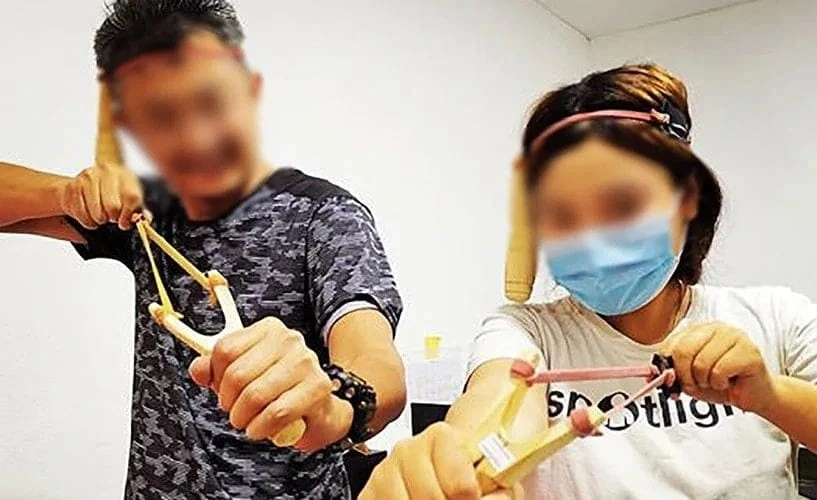Thais speak in a very different way than Westerners, and cultural misunderstandings can arise if you are unfamiliar with Thai culture.
Advice from The Thaiger newspaper, on communication between Thais and Westerners.
Thais are generally pleasant and laid-back, and they will forgive visitors who make unintentional rude gestures.
See: Do’s and don’ts in Thailand, the essential things to know
Making the effort to know some of these differences and knowing what you should and shouldn’t do can help you avoid an embarrassing scenario.
Give advice or advice
Thai culture prefers indirect negative comments.
If a Thai friend or colleague wants to say something bad to you, they will do it quietly, indirectly, and politely.
He may try to pass off his bad comments as helpful advice.
The Western approach to communication favors direct negative feedback, something Thais hate and avoid.
This leads to misunderstandings, because foreigners are used to communicating directly.
When foreigners refuse to accept what Thais suggest they change or adapt, Thais wonder why they refuse to listen.
Sounds like kind advice rather than something serious.
For example, Michael is assessed by his Thai boss, Nat, in a typical Thai way.
Michael takes Nat’s feedback as friendly advice rather than genuine constructive criticism.
Instead of guiding Michael in the right direction, Nat gives him his idea on how he could approach the tasks.
Another lived example (Pierre To), I wanted to deepen my knowledge of meditation and had contacted a French-speaking foreign monk, in the north of Thailand.
This monk, I learned later, had a very bad reputation.
When I was on the bus, close to my destination, I spoke with a Thai man who knew this monk and who tried to warn me.
But he never issued a direct criticism of this monk, just told me that there were many other people or places where I could learn meditation.
Eventually, I had many problems with this monk, who has since been defrocked.
Avoidance of conflict or confrontation
Thais don’t like confrontation.
Arguments can cause a stir in relationships between friends and co-workers.
They also think that arguing or expressing their opinion is disrespectful and embarrassing.
Foreigners, on the other hand, are more inclined to express their opinions and be open-minded.
Differences of opinion are beneficial to the development of a working group.
Personal relationships are not affected since professional and personal relationships are separate.
This leads to misunderstandings, as foreigners often think they can challenge a Thai colleague without jeopardizing the relationship.
The Thai colleague will think about it for days and wonder why his foreign teammate can be sometimes rude and sometimes nice.
For example, Jason and Vichai have a meeting about the project their boss gave them.
Vichai pitches his idea to Jason, who disagrees with him and prefers to take a different angle.
Vichai has his mind set on Jason’s choice of words, and he lets his foreign colleague take the lead rather than challenge him with his idea.
Hierarchy or equality?
In Western countries, everyone’s voice and opinion are heard and valued.
In Thai culture, this is not the norm.
The boss is rarely questioned, and anything he asks is granted.
For Thai people, it is more important to be polite than to be correct, to respond creatively or to suggest different ways of doing things.
When deciding whether or not to speak their mind, your Thai colleagues or friends should consider their age, rank, and social status.
Also, Thai people don’t like to lose face.
Here is an example of hierarchy or equality.
Robert has just gotten a job in Thailand and is thrilled with his new experience.
He has a lot of fresh ideas about what he could bring to the table.
On the first day, he presents his ideas to his new Thai colleagues, but the response does not have the expected effect.
As a new employee, his opinion does not count.
Explicit or implicit?
It’s Friday night, and the company you work for is going out for dinner.
Your Thai colleague, Bank, is late for lunch after having to finish some last-minute work.
The team ordered pizzas and there was only one slice left when Bank arrived.
However, William asks if he can have the last slice, and Bank agrees despite not having eaten yet and his stomach growling.
For Thais, it’s completely different.
They communicate in a very contextual way.
Whatever they express, there is a level of complexity that most foreigners are unaware of.
When a Thai asks you if you have eaten, for example, they are asking you much more than if you have eaten.
He wants to know more about your day and your plans.
When foreigners expect their Thai friends to speak their minds and interact in the Western way, they run into problems.
Communication out of context is normal for strangers.
If strangers say they don’t want something, they don’t want it.
Direct and simple communication is best when talking to others.
Source : The Thaiger
We would love to give thanks to the writer of this write-up for this awesome web content
What are the common communication mistakes between Thais and foreigners?
Find here our social media accounts as well as other pages related to it.https://nimblespirit.com/related-pages/

